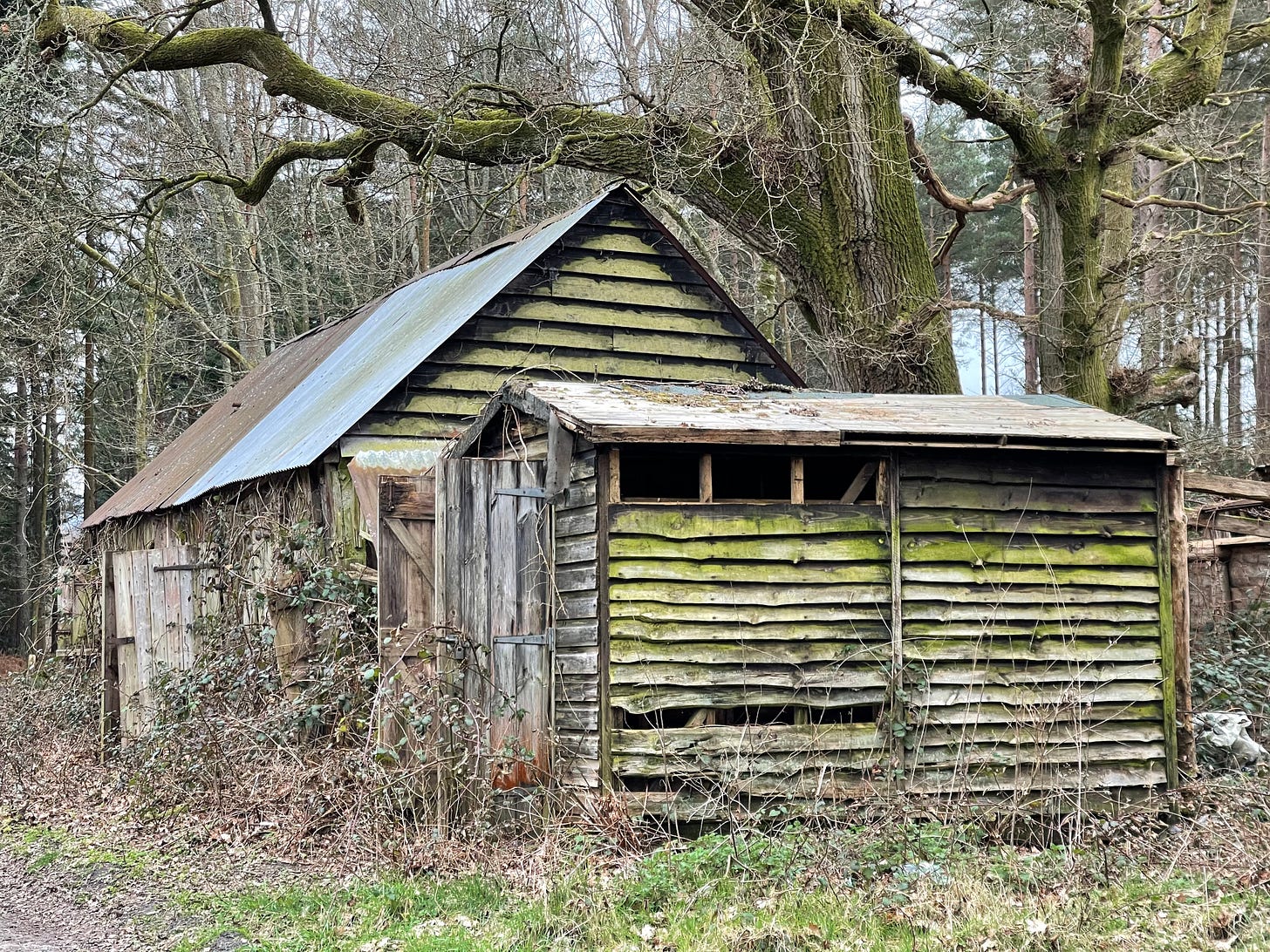Is a shed a substitute for something never had, a replacement mother, or a kind of flat-pack dad? Was it where we tasted our first amazing kiss, or where our obsessions culminate in bliss? In his shed, as sensible as creosote, is Dave, busy as a bee with his lawn mower and his lathe. Here the businessman ponders his projections; this knot-holed retreat is his favourite erection. Then someone else appears in this nutbush-coloured home, with his malt, his Private Eye, his little band of gnomes. This alter ego keeps no careful eye on time, the hours simply vanish exploring the sublime. The two come together in their little wooden house and find their consummation with the spider and the mouse. Triple-hinged the door reveals a different world within smelling of beeswax, petrol, tarpaulin. How I should like to be a woodlouse in the dark and see the private man in the shed’s generous heart, feel the hand-stroked weather board, every splinter’s prick; hear the tenderness of silence, the roof felt’s gentle creak. A shed’s the secret mistress every man desires in its dark interior we’re forgiven all our cares. Safe in the embrace of moonlit tongue and groove a shed is the nearest thing many find to love
The title plays with the idea of the Horseman’s word, that I first heard about from Don Paterson and that he subsequently wrote about in his 2004 T. S. Eliot lecture on The Dark Art of Poetry.
Arcana are things as small, specific, useful and horrible as the Horseman's Word. Actually the horseman's word - which gives the apprentice ploughman power over horses and women when it's whispered in their ears - is also the secret formula for all poems. It was unwisely published in F. Marian MacNeill's The Silver Bough, so now it's in the public domain you might as well know it. In Scots it's twa-in-yin; two in one.
He went on:
The object of a poem is to place a new unity in the language (an exploded view, if you like, of a new word) that results from the love affair between two hitherto unconnected terms: two words, two ideas, two phrases, two images, a word and an image, a phrase and a new context for it, so on. One thing is sterile and will result perhaps in some pretty description - but nothing the poet did not know before they started. These are the poems that are made up. If two things don't exist, there will be no discovery in our process, and hence absolutely no surprise for the reader. (I'll give you a more specific formula: the process of the poem is that of a unifying idea being driven through the productive resistance of the form proposed by the marriage of two previously estranged or unrelated things.)
I’m glad we got that cleared up.
The poem was commissioned by a lady for her partner's 60th birthday present. She told me he was a completely different man outside compared to inside the shed, where they consummated their relationship.
She was also surprised that I had intuited – or at least had found words that could express – the fact that his mother died when he was a boy.
It proved to be the signature poem for my alter ego Shedman, the original poet in a shed who created poetic interventions with the public between 2002 and 2016. He is currently writing his memoirs and spends most of his time on Shedstack.
He’s still in the business of writing commissioned poems. Next week I’ll post another that he, I mean I, wrote for The Guardian
You can hear an audio version of the poem on A Patch of Sky here:





